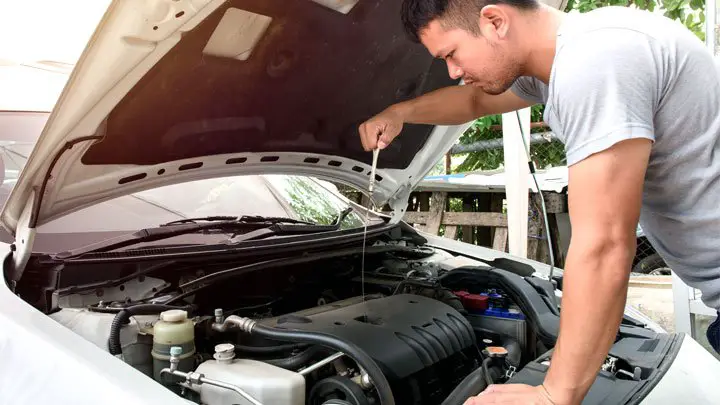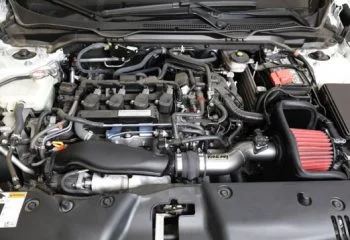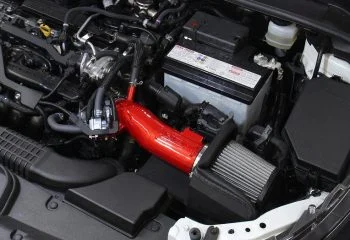You’ve been using the same oil in your car for a while, and suddenly it’s started to smell like gas. What could be going on?
It’s normal for an engine to make a little noise, but if you’re hearing an abnormal noise and your oil smells like gas, there might be a problem.
The good news is you’re not alone. It’s a common problem and one that can be caused by a variety of factors. The most common reason for oil smells like gas is a leaking fuel injector.
Other causes can include a faulty oxygen sensor or piston ring, an engine running too rich, or an issue with the ignition system,…
In this blog post, we’ll take a look at the symptoms, causes, and fixes for an oil smells like gas. We’ll also provide some tips on how to prevent the problem from happening again.
What's in this post?
Why does your oil smells like gas?
There are a number of factors that can cause your oil to smell like gas, including issues with the engine or fuel system. Here are some of the most common causes:
Leaking fuel injectors
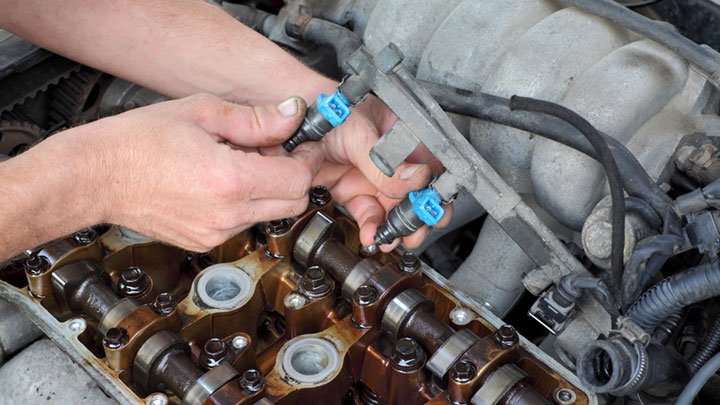
Fuel injectors are responsible for delivering gasoline to the engine. If they are leaking, it can cause gas to enter the oil system, which will result in an oil smells like gas.
While this may not seem like a big deal, it can actually be quite dangerous.
Gasoline is a highly combustible material, and if it mixes with oil, it can create a fire hazard. In addition, oil and gasoline don’t mix well, so if there is gasoline in the oil system, it can lead to engine damage.
If you notice an oil smell like gas, it’s important to have your car checked out by a professional as soon as possible.
Faulty oxygen sensor
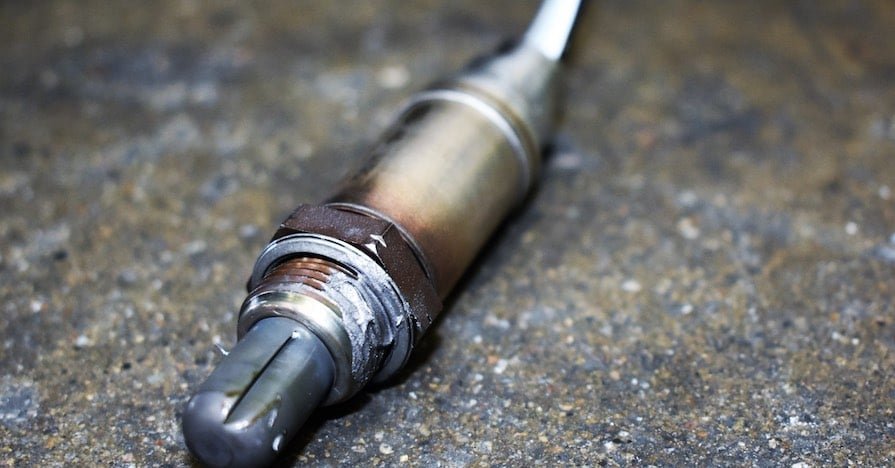
When the oxygen sensor in your car is not working properly, it can have a number of negative consequences.
For one thing, an engine that runs rich may produce an oil smells like gas and will typically result in decreased horsepower.
In addition, this condition can even lead to cat converter failure due to excessive build-up of carbon.
Engine running too rich
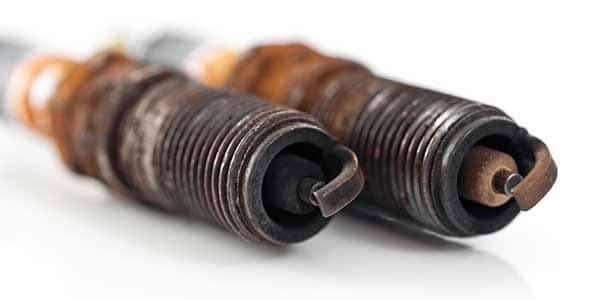
If the engine of your car is running too rich, it means that there is too much gasoline and not enough air.
This can be caused by a variety of factors, such as a clogged air filter, damaged fuel injectors, or a dirty throttle body.
One possible culprit could be oil that smells like gas. This may indicate an oil leak somewhere in the engine, which allows oil to contaminate and dilute the fuel.
If you are experiencing issues with your engine running rich, it is important to have your car inspected by a professional mechanic as soon as possible to identify and resolve the root cause of the problem.
With a clean air flow, sufficient fuel supply, and properly functioning components, you should be able to keep your engine running smoothly for years to come.
If you found oil spraying over the engine, it may occur by other problems, here is more detail about what would cause oil to spray all over engine?
Faulty Piston Rings
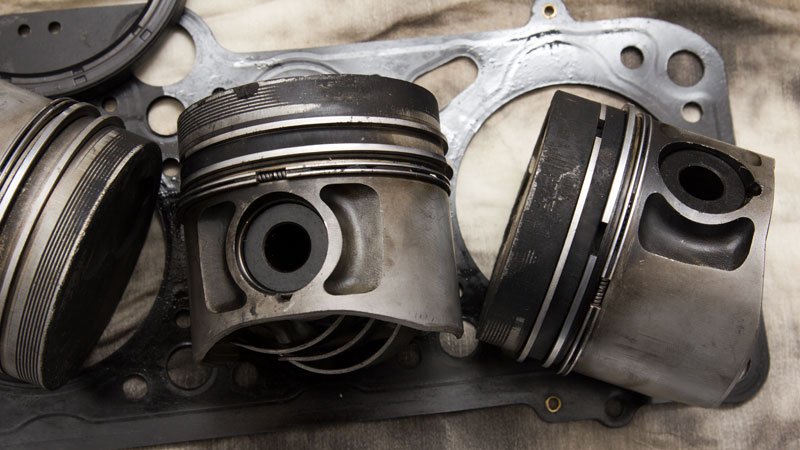
Piston rings are essential components of the engine that work to prevent oil from passing into the combustion chamber and fuel from getting into the crankcase.
Made from a hard, durable material, piston rings act as a sealing agent between the cylinder walls and pistons to ensure that oil stays where it is supposed to and that fuel is isolated in the appropriate places.
However, over time, these vital parts can wear out, allowing oil or fuel to pass through their gaps and resulting in an oil-gas smell in the car.
This problem can be identified by checking for gas or oil residue on spark plugs or around cylinder walls, as well as by paying attention to any unusual odors in the car.
If you notice an oil smell like gas in your vehicle, it is important to have your Piston rings inspected and replaced as necessary so that your engine continues running smoothly.
Ignition System Issues
An engine’s ignition system is a complex network of individual components that all work together to produce sparks and ignite the fuel that is delivered into the engine’s cylinders.
These components include everything from batteries and spark plugs to capacitors and coils.
If even a single component fails or becomes faulty, this can lead to what is known as “pre-ignition”, where unburned fuel can wash past the cylinder’s piston rings, resulting in oil that has a distinct gas smell.
This oil can quickly build up in the sump, causing further problems like oil dilution or oil starvation.
To prevent these issues from arising, it is critical for engine owners to perform regular maintenance on their ignition system and stay on top of any potential signs of trouble.
Whether it’s replacing worn-out parts or simply performing routine tune-ups, taking these proactive measures will help keep an engine running smoothly for years to come.
Engine Misfire
Misfiring is a relatively common issue that can pop up in vehicles from time to time.
When it happens, it means the air/fuel mixture is not being ignited correctly and the combustion cycle is disturbed.
This usually leads to oil smelling like gas, as well as decreased compression and increased blow-by through the piston rings.
If you’re experiencing these symptoms, it’s important to take your car to a qualified mechanic to have it looked at. In some cases, a simple tune-up may be all that’s needed to fix the problem.
However, if the issue is more serious, it may require more extensive repairs.
Whatever the case may be, it’s important to have your car checked out as soon as possible to avoid further damage.
Short Distance Drive
One possible culprit for an oil smell like gas in your car could be short-distance drives.
When a car is only driven for short distances, it doesn’t have enough time to warm up properly and the oil doesn’t get a chance to reach its optimal operating temperature.
This can cause the oil to thicken and form sludge, which can then contaminate the fuel system and result in an oil smell like gas.
To prevent this from happening, try to take long drives on a regular basis so that the oil has more time to heat up and reach its full potential.
Additionally, consider switching to a high-quality synthetic oil blend that is designed specifically for short-distance driving.
These products are formulated with fewer waxes and other contaminants, which can help improve engine performance in cold conditions.
No Oil Changes
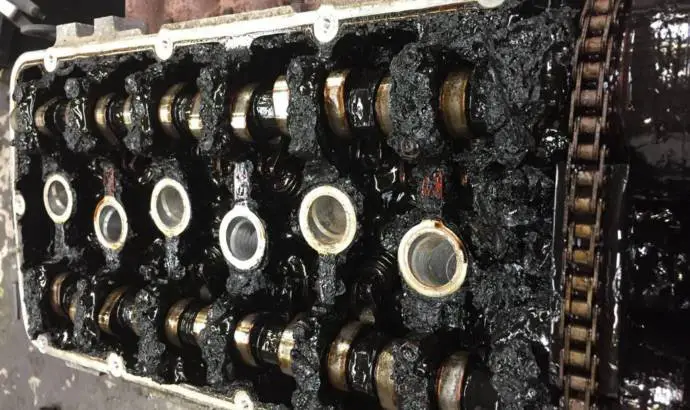
One of the most common causes of gas-like oil in your engine is a lack of regular oil changes.
Since oil acts as a lubricant and preventative measure for your engine, it’s crucial to change it regularly if you want your car to run smoothly.
If you haven’t been changing your oil on time, this can result in increased wear and tear on parts like piston rings, which will allow fuel or oil to leak by and produce an oily gas smell in your vehicle.
To avoid this problem, make sure that you are getting regular oil changes at the recommended intervals specified in your owner’s manual.
When dealing with any potential problems related to an oily gas smell in your car, it’s important to take the appropriate steps to diagnose and fix the issue as soon as possible.
Dirty Patrol
At one point or another, many drivers have encountered the issue of buying dirty gas at the filling station.
This dirt can come from a number of sources, including oil and fuel spills on the ground, storage well contamination, or unrefined oil that has not been properly filtered.
When this dirty gas is being pumped into your vehicle’s tank, some of it will not burn properly due to the presence of these contaminants.
As a result, unburnt gas ends up making its way into the vehicle’s engine oil supply through the crankcase.
Not only does this oil smell like gasoline, but it can also lead to a number of performance issues and engine damage over time.
To prevent these problems from occurring, it is important to be aware of signs indicating that you might be dealing with dirty gas and to avoid buying fuel from suspicious sources.
Stuck Fuel injectors
Finally, another potential cause of your oil smelling like gas may be due to a problem with your fuel injectors.
Each time you start your vehicle, the fuel injectors will spray a fine mist of fuel into the combustion chamber under high pressure.
Although this is generally a reliable system, there are times when it can malfunction or become blocked with dirt and debris from the gasoline.
This can result in an engine that runs poorly and creates excess blow-by during its operation, which leads to oil contamination and an unpleasant smell in your car.
To address this issue, it’s important to have your vehicle inspected by a professional mechanic for any signs of damage or blockages related to the fuel injectors.
Internal Engine Wear
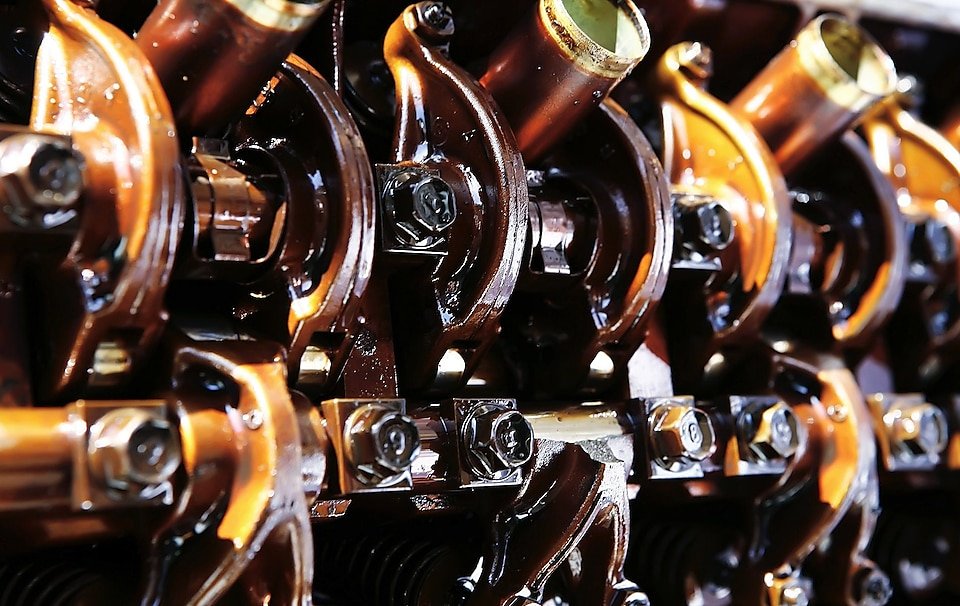
As your car’s engine runs, the various components inside are subjected to a tremendous amount of wear and tear.
Over time, this can lead to problems like oil leaks, which can result in an oily gas smell in your vehicle.
To prevent this from happening, it’s important to have regular maintenance performed on your car and to address any issues that arise as soon as possible.
This will help keep your engine running smoothly for years to come.
As you can see, there are a number of factors that can cause oil to smell like gas.
If you experience this problem, it’s best to bring your vehicle in to have it inspected by a mechanic. They will be able to diagnose the issue and make the necessary repairs.
How to prevent an oil smells like gas?
Along with taking your vehicle in for regular maintenance and inspections, there are a few things that you can do yourself to help prevent an oil smell like gas from occurring again. These include:
- Checking the air filter regularly and replacing it if necessary
- Make sure that all fuel connections are tight and properly sealed
- Keeping the engine clean and free of debris
- Inspecting the oxygen sensor and replacing it if necessary
- Checking for leaks in the fuel system
If you follow these tips, you can help prevent an oil smell like gas from happening again. However, if the problem does occur, don’t hesitate to bring your vehicle in to have it diagnosed and repaired.
What Are the Signs of an Oil-Gas Mixture?
It’s important to be able to identify an oil-gas mixture in order to avoid potential dangers. Here are some of the signs you should look for.
Smell of gasoline
If you notice a strong gasoline smell coming from your car, it is likely that your oil has become contaminated with gas.
This is one of the most obvious signs that there may be an issue with your oil.
Gas can dilute the oil and reduce its effectiveness, causing engine damage and reduced fuel efficiency.
Furthermore, contaminated oil has the potential to cause dangerous fires or explosions if it comes into contact with a spark or flame.
Therefore, it is important to take action as soon as possible if you notice this telltale oil smell.
Some possible steps that you can take include draining the oil and refilling it with new oil or getting your car towed to a mechanic for inspection and repair.
In any case, it is essential to deal with the issue quickly in order to prevent further damage to your vehicle’s engine.
Higher Oil Level than usual
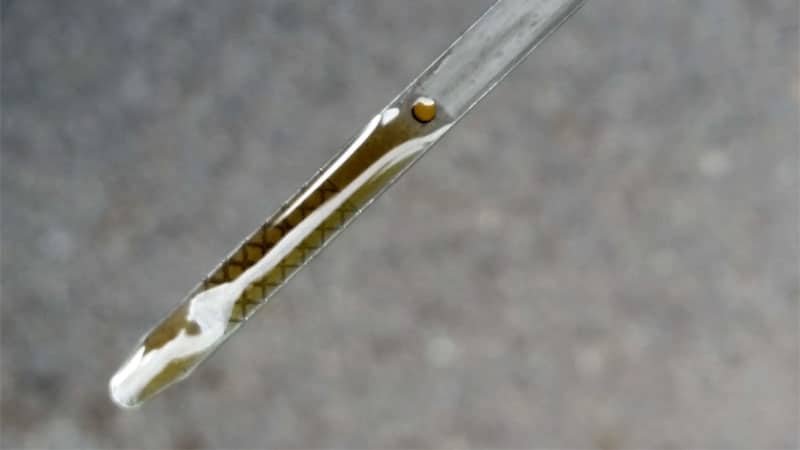
If you’re noticing an increase in your car’s engine oil levels, it could be due to water or gas. The engine oil should not increase significantly in any case.
If there is much of an increase, then it could mean that some fluid or gas made its way into your car’s lubrication system and will affect how well you drive down the road (or race track).
You can easily tell if this happens by checking out what color remains after removing fluid from inside our motor: brownish-yellow!
Foamy oil
When you are checking the oil level on your car, it is important to pay close attention to any signs of trouble.
One of the most obvious indicators that there may be a problem with your oil is if it starts to look foamy or bubbly.
This means that there is gasoline floating on top of the oil, which can lead to damage and breakdown over time.
Additionally, oil that smells like gas could indicate a larger problem with your engine and should be addressed immediately.
The gas smell coming from the Dipstick
If you notice a strong gasoline smell coming from your oil dipstick, it’s a sign that your oil is contaminated with gas.
This can happen if your car’s oil filler cap is loose or if there’s a crack in the oil line.
Gasoline in the oil can cause serious engine damage, so it’s important to have it checked by a mechanic as soon as possible.
If you catch the problem early, they may be able to just flush the oil and replace the filter.
However, if the contamination is severe, you may need to have the oil pan and other parts of the engine replaced.
Another sign that your oil is contaminated with gas is if you notice a strong gasoline smell coming from the dipstick itself.
If you see this, it’s important to take action immediately so as not to cause further damage to your engine.
White Exhaust Smoke
If you notice white smoke coming from your exhaust pipe, it’s likely due to an issue in your combustion chamber. Rich fuel can cause unburnt fuel to find its way to the crankcase and dilute the oil, leading to exhaust smoke.
This is one of the more serious symptoms of an oil-gas mixture and can lead to severe engine problems if left untreated.
If you see this smoke coming from your car, it’s important to take it in for inspection as soon as possible so that you can prevent further damage.
What will happen if oil goes into the crankcase?
If you’re wondering what will happen if oil goes into the crankcase, the answer is it depends.
If a small amount of oil finds its way into the combustion chamber, it will simply be burned off and won’t cause any damage.
However, if there is a significant amount of oil in the crankcase, it can cause some serious problems.
The oil can dilute the fuel and cause engine misfires, decreased power, and reduced fuel economy. In extreme cases, it can even lead to engine failure.
The oil will affect the viscosity of the mixture, leading to fast wear and tear on the engine parts. In addition, the oil can cause overheating as it tries to dissipate the heat from the engine.
As a result, it is important to take care when adding oil to the engine and to check for leaks regularly.
In short, if oil gets into the crankcase, it can have a significant impact on your car’s performance.
How can you fix oil smells like gas?
There are a few steps you can take to fix oil that smells like gas. The first is to check for any leaks or cracks in the oil line, as this could be allowing gasoline to seep into the engine, causing oil dilution.
Oil dilution is a problem that occurs when the oil becomes contaminated with fuel, water, or other fluids. There are a few things you can do to manage oil dilution.
- Checking components: If you find any leaks, they should be repaired by a professional mechanic as soon as possible.
- Go for a long drive regularly: A couple of hours with lean burning on the highway will help to sustain optimum temperature operation.
- Change your oil regularly: This will help to remove any contaminants that have accumulated in the oil.
- Consider using a higher quality oil: A synthetic oil may be more expensive, but it will provide better protection against oil contamination.
By following these tips, you can help to keep your engine healthy and reduce the risk of oil dilution.
FAQs about oil smells like gas issue
Can you see gasoline in oil?
Yes, you can see gasoline in oil if there is a significant amount of it present.
Contamination of motor oil by gasoline is not always immediately visible.
In fact, the primary indication of this type of contamination is typically a thinning of the oil, which makes it appear more translucent.
Is It Safe to Drive If Your Engine Oil Smells Like Gas?
Whether or not it is safe to drive if you smell gas in your engine oil will depend on the severity of the contamination.
If there is only a small amount of gasoline present, it may not cause any immediate problems.
However, if there is a significant amount of fuel in your crankcase, it can cause serious issues with your engine performance.
As such, it’s generally recommended that you have the vehicle inspected by a mechanic as soon as possible if you notice this problem.
Is it bad if your oil smells like gas?
If your oil has a gas smell, it probably means that the oil has mixed with gas. This can be caused by a number of different factors, including leaks in the oil line, gasoline leaking into the engine crankcase, or contamination from water or other fluids.
This will make your engine more prone to damage and can also lead to decreased performance and reduced fuel economy.
Will gas evaporate out of gas?
No, gas does not evaporate out of gas easily. It can be removed through a variety of different methods, including heating or cooling the fuel to change its state, purging it with a vacuum pump, or using an absorption compound such as heptane.
Can a bad PCV valve cause gas in oil?
Yes. The bad PCV valves can cause engine oil contamination, sludge build-up, and other damaging problems to your car.
Is synthetic oil supposed to smell like gas?
No, synthetic oil should not smell like gas. If your synthetic oil has developed a gasoline smell, this may indicate that your engine is experiencing some degree of dilution or contamination, which will have a negative impact on performance and fuel economy.
Does gas in oil damage the engine?
Yes. If your engine oil is found to contain a large amount of gasoline, it is absolutely essential that you take action immediately to address the underlying issue that led to this problem.
As gas increases the viscosity of the oil, it can cause scoring and wear on cylinder walls as well as significant damage to critical engine components such as bearings.
Over time, this can gradually degrade your engine’s performance and lead to serious issues such as complete failure.
Conclusion
Hopefully, this article has helped you better understand the potential causes of oil smells like gas in your car.
If you are experiencing any of the symptoms listed above, it is important to take your car in for a diagnostic as soon as possible. The sooner you can identify and fix the issue, the less money and inconvenience you will experience.
If you are still experiencing this issue after trying some of the fixes we suggested, you need to reach out to an auto mechanic for more assistance.

